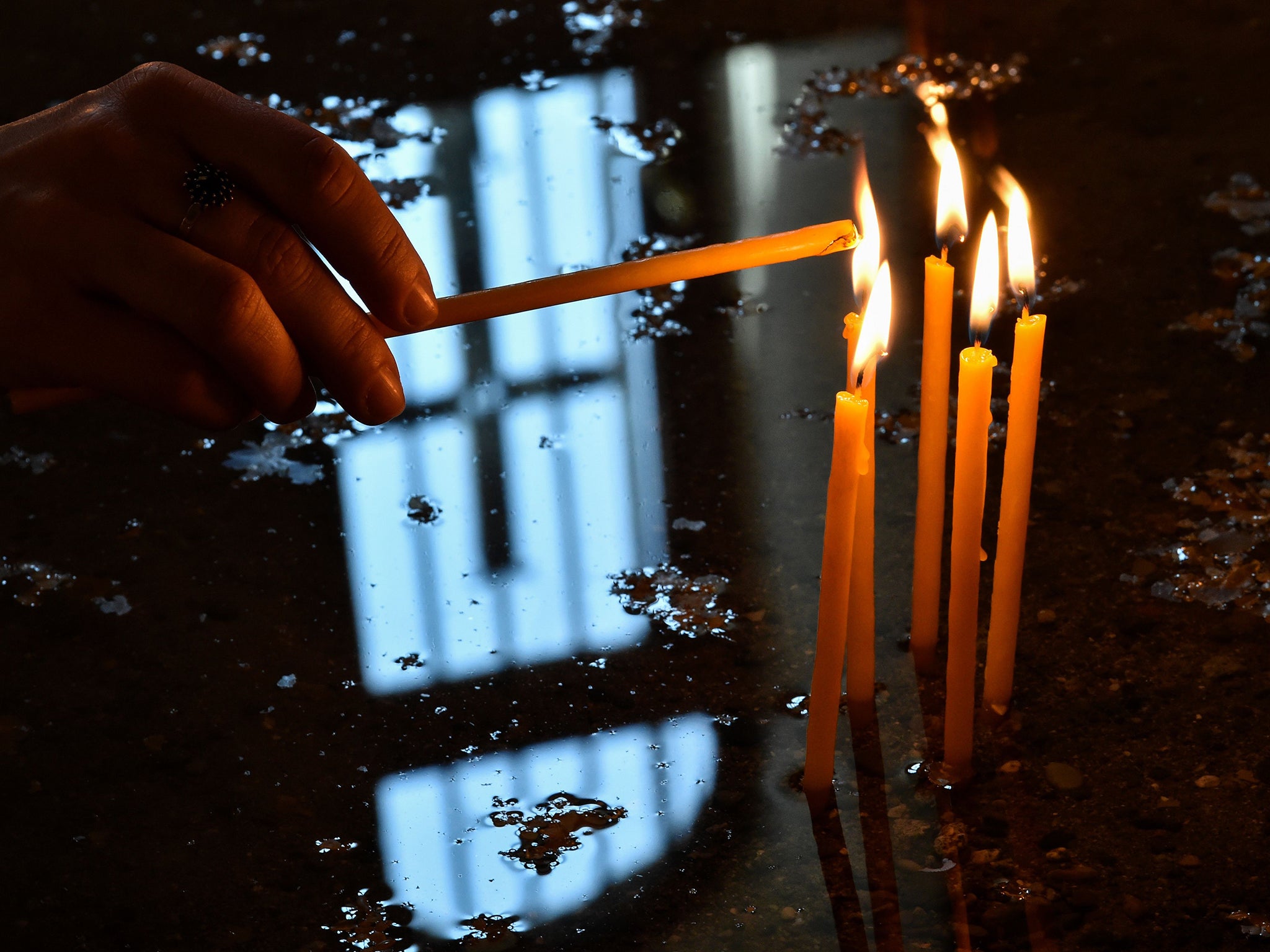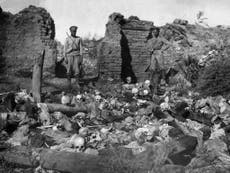It's pure sophistry that stops Britain recognising the Armenian genocide
The centenary falls tomorrow, but British Armenians aren't holding their breath for a change in the government's line

What do Kim Kardashian and Pope Francis have in common, apart from an impressive wardrobe? In the past few weeks, they have both been raising awareness of the Armenian Genocide, whose centenary falls on April 24.
While the Kardashians minced around their ancestral homeland, flitting between genocide memorials and upscale restaurants, the Pope declared that what happened one hundred years ago was indeed a genocide. Money can’t buy this kind of PR.
In a sense, the Pope was stating the obvious: on the evidence, the systematic displacement and slaughter of between one and two million Armenians by the Ottoman authorities indisputably amounted to genocide. Yet his intervention was significant.
Most of the world’s governments, including Turkey’s, the USA’s and our own, refuse to use the “g” word, preferring euphemistic terms like “tragedy”. Ankara lacks the moral courage to recognise the crimes of its predecessor for what they are, and its allies dare not offend it by disagreeing.
The British government has a strong track record in sophistry. Since Turkey became a strategic partner in the Nineties, the Foreign Office has been honing a set of cod-legal arguments designed to deceive Parliament – and by extension the electorate – into believing that the term “genocide” is not appropriate in this case.
Its current position is that it will only use the label if an international tribunal has already done so. This is a nimble legal dodge, which rules out recognising almost every genocide in history.
A more honest reason for our government’s equivocation is given in an internal memo, obtained through a Freedom of Information request lodged by human rights lawyer Geoffrey Robertson. “Given the importance of our relations with Turkey,” reads one passage, “and that recognising the genocide would provide no practical benefit to the UK… [denial] is the only feasible option.”
Memory of the genocide unifies the Armenian diaspora, which exists largely because of it. The majority of British Armenians believe that recognition by Parliament would be a huge symbolic gesture (not to mention a reaffirmation of Britain’s commitment to the Genocide Convention), and continue to press for it.
Yet in the face of repeated stonewalling, many have lost faith in their politicians’ power to effect change. Misak Ohanian, CEO of the Centre for Armenian Information and Advice, explains that the issue of official acknowledgment of the bleeding obvious has become a distraction from the ultimate goal: to reconcile with Turkey. “It’s like lobbying for recognition of daylight,” he says. “It’s the wrong agenda.”
Increasingly, the campaign to raise awareness of the genocide is being played out at the grassroots level. In 2010 Ealing Council – which represents a sizeable Armenian community – carried a motion to recognise it and plant a commemorative apricot tree on Ealing Green.
Even this elicited a furious reaction from the Turkish embassy, and local Labour MP Stephen Pound tells me that one dissenter tried to punch him at an advice clinic; yet despite the opposition, the tree has become a rallying point for peaceful demonstrations against the Turkish government, and a potent symbol of the living memories of the crimes.
Others bypass political channels altogether. Raphael Gregorian, president of the Armenian Society at Soas, tells me that it is important to keep British Armenians in touch with their cultural roots, while encouraging them to appreciate the heritage they share with Turks. “If an Armenian meets a Turk, they shouldn’t be scared – we’re people of the same land,” he says, before enumerating the events he’s organised together with the Turkish and Kurdish Societies.
He tells me of two Turkish students who initially kept their distance from these joint events, before relenting and coming to a talk on the genocide. They were fascinated by what they learned, and now attend regularly. The lesson here is that in its denial of the genocide, Ankara does not speak for all Turks, many of whom are now coming to terms with their history and beginning to criticise their government’s position.
Tolerant voices like Gregorian’s are still in the minority. But as a new generation of British Armenians, born in the diaspora and raised liberally, make use of social media and cheap flights to interact directly with Turks, their activism may lead to a way out of the political deadlock.
Britain’s dependence on Ankara as a stable friend in a volatile region is growing, and the prospect of governments negotiating a reconciliation is receding. On the centenary tomorrow realpolitik will carry the day, and Parliament won’t change its line. More than ever, British Armenians will be tempted to consider other ways of making themselves heard.


Join our commenting forum
Join thought-provoking conversations, follow other Independent readers and see their replies